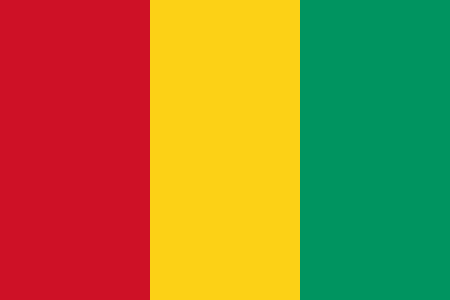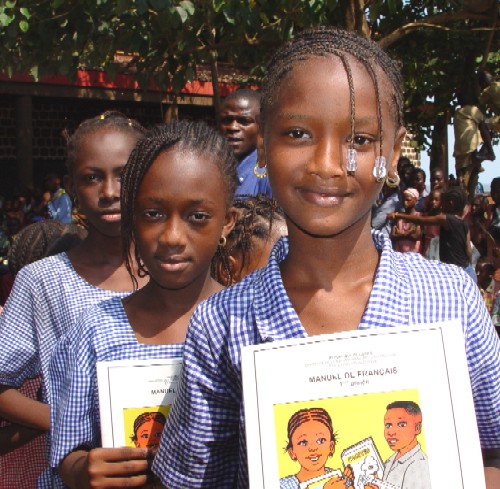Difference between revisions of "Adopting from Guinea"
(→Who Can Be Adopted) |
m (→SOURCE) |
||
| (19 intermediate revisions by 2 users not shown) | |||
| Line 1: | Line 1: | ||
| − | + | {{#eimage:http://upload.wikimedia.org/wikipedia/commons/thumb/e/ed/Flag_of_Guinea.svg/450px-Flag_of_Guinea.svg.png|410x579px|thumb|'''The official flag.'''<BR/>Source: Wikipedia.org.}} | |
| + | {{#eimage:https://www.cia.gov/library/publications/the-world-factbook/graphics/maps/gv-map.gif|410x579px|thumb|'''Map.'''<BR/>Source: cia.gov.}} | ||
| − | + | {{#eimage:https://www.cia.gov/library/publications/the-world-factbook/graphics/locator/afr/gv_large_locator.gif|410x579px|thumb|'''Map.'''<BR/>Source: cia.gov.}} | |
| + | {{#eimage:http://upload.wikimedia.org/wikipedia/commons/3/3a/Guinee_Fouta_Djalon_Doucky.jpg|410x579px|thumb|'''Guinean children.'''<BR/>Source: Wikipedia.org.}} | ||
| − | + | {{#eimage:http://upload.wikimedia.org/wikipedia/commons/thumb/1/14/Fisher_women_on_River_Niger_in_Guinea%2C_Africa.jpg/800px-Fisher_women_on_River_Niger_in_Guinea%2C_Africa.jpg|410x579px|thumb|'''Fisher women on the river.'''<BR/>Source: Wikipedia.org.}} | |
| + | {{#eimage:http://upload.wikimedia.org/wikipedia/commons/thumb/4/44/Conakrymosque.jpg/450px-Conakrymosque.jpg|410x579px|thumb|'''Conakry Mosque.'''<BR/>Source: Wikipedia.org.}} | ||
| − | + | {{#eimage:http://upload.wikimedia.org/wikipedia/commons/7/71/Guinea_schoolgirls.jpg|410x579px|thumb|'''[[Guinea]] schoolgirls.'''<BR/>Source: Wikipedia.org.}} | |
| − | ''' | + | '''Notice: As of July 14, 2014, all individuals and agencies facilitating [[international]] adoptions must be in compliance with the Intercountry [[Universal Accreditation Act]].''' |
| + | The information contained on this website is for educational purposes only and is not intended to be a substitute for professional legal advice. Always seek the advice of a licensed and qualified professional. While the content of this website is frequently updated, information changes rapidly and therefore, some information may be out of date, and/or contain inaccuracies, omissions or typographical errors. | ||
| + | |||
| + | |||
| + | =About Guinea= | ||
| + | |||
| + | [[Guinea]] is at a turning point after decades of authoritarian rule since gaining its independence from [[France]] in 1958. [[Guinea]] held its first free and competitive democratic presidential and legislative elections in 2010 and 2013 respectively. Alpha CONDE was elected to a five year term as president in 2010, and the National Assembly was seated in January 2014. To learn more please read [[About Guinea]]. | ||
| + | |||
| + | |||
| + | =Hague Convention Information= | ||
| + | |||
| + | [[Guinea]] is party to the Hague Convention on Protection of Children and Co-operation in Respect of Intercountry [[Adoption]] ([http://adoption.state.gov/hague_convention/overview.php Hague Adoption Convention]). To learn more please read [[Guinea and the Hague Convention]]. | ||
| − | |||
=Who Can Adopt= | =Who Can Adopt= | ||
| − | In addition to the U.S. requirements, Guinea obliges prospective adoptive parents to meet | + | In addition to the U.S. requirements, [[Guinea]] obliges prospective [[Adoptive Parents|adoptive parents]] to meet multiple requirements in order to [[adopt]] a child from [[Guinea]]. To learn more please read about [[Who Can Adopt from Guinea]]. |
| − | |||
| − | + | =Who Can Be Adopted= | |
| − | + | Because [[Guinea]] is party to The Hague [[Adoption]] Convention, children from [[Guinea]] must meet the requirements of the Convention in order to be eligible for [[adoption]]. For example, the [[adoption]] may take place only if the competent authorities of [[Guinea]] have determined that placement of the child within [[Guinea]] has been given due consideration and that an intercountry [[adoption]] is in the child’s best interests. To learn more please read [[Who Can Be Adopted from Guinea]]. | |
| − | |||
| − | = | + | =How to Adopt= |
| − | + | '''WARNING: [[Guinea]] is party to the Hague [[Adoption]] Convention. Do not [[adopt]] or obtain [[Legal Custody|legal custody]] of a child in [[Guinea]] before a U.S. consular officer issues an “Article 5 Letter” in the case. Read on for more information.''' | |
| − | == | + | ==Adoption Authority== |
| − | + | '''[[Guinea]]’s [[Adoption]] Authority''' | |
| + | |||
| + | Ministry of Social Affairs, Women and Children | ||
| − | == | + | ==The Process== |
| − | + | Because [[Guinea]] is party to The Hague [[Adoption]] Convention, adopting from [[Guinea]] must follow a specific process designed to meet the Convention’s requirements. A brief summary of the Convention [[adoption]] process is given below. You must complete these steps in the following order so that your [[adoption]] meets all necessary legal requirements. Adoptions completed out of order may not confer immigration benefits on the [[adopted]] child (i.e. it is possible the child would not qualify for an immigrant visa if [[adopted]] out of order). | |
| − | |||
| − | + | # Choose a U.S. accredited or approved [[Adoption Service Provider|adoption service provider]] | |
| + | # Apply to USCIS to be found eligible to [[adopt]] | ||
| + | # Be matched with a child by authorities in [[Guinea]] | ||
| + | # Apply to USCIS for the child to be found eligible for immigration to the United States and receive U.S. agreement to proceed with the [[adoption]] | ||
| + | # [[Adopt]] the child in [[Guinea]] | ||
| + | # Obtain a U.S. immigrant visa for your child and bring your child home | ||
| + | To learn more about this process please read [[How to Adopt from Guinea]]. | ||
| − | |||
| − | + | =Traveling Abroad= | |
| − | ''' | + | '''Applying for Your U.S. Passport''' |
| − | + | A valid U.S. passport is required to enter and leave [[Guinea]]. Only the U.S. Department of State has the authority to grant, issue, or verify U.S. passports. To learn more please read about [[Traveling Abroad in Guinea]]. | |
| − | |||
| − | + | =After Adoption= | |
| − | + | Many [[Adoptive Parents|adoptive parents]] find it important to find support after the [[adoption]]. There are many public and private nonprofit post-[[adoption]] services available for children and their families. There are also numerous adoptive family support groups and [[adoptee]] [[organizations]] active in the United States that provide a network of options for adoptees who seek out other adoptees from the same country of origin. Take advantage of all the resources available to your family -- whether it is another adoptive family, a support group, an advocacy organization, or your religious or community services. | |
| − | |||
| + | Here are some places to start your support group search: | ||
| − | |||
| − | + | [https://www.childwelfare.gov/ Child Welfare Information Gateway] | |
| − | + | [http://www.nacac.org/ North American Council on Adoptable Children] | |
| + | [http://www.adoptionservices.org/adoption_support_groups_family/index.htm Adoption Services Support Groups for adopting Persons] | ||
| − | + | ||
| + | '''NOTE:''' Inclusion of non-U.S. Government links does not imply endorsement of contents. | ||
==SOURCE== | ==SOURCE== | ||
| − | '''Intercountry Adoption, Bureau of Consular Affairs. U.S. Department of State Country Information''' | + | '''Intercountry [[Adoption]], Bureau of Consular Affairs. U.S. Department of State Country Information''' adoption.state.gov/country_information/country_specific_info.php?country-select=guinea |
[[Category: International Adoption]] | [[Category: International Adoption]] | ||
Latest revision as of 04:44, 19 February 2018
Notice: As of July 14, 2014, all individuals and agencies facilitating international adoptions must be in compliance with the Intercountry Universal Accreditation Act.
The information contained on this website is for educational purposes only and is not intended to be a substitute for professional legal advice. Always seek the advice of a licensed and qualified professional. While the content of this website is frequently updated, information changes rapidly and therefore, some information may be out of date, and/or contain inaccuracies, omissions or typographical errors.
Contents
About Guinea
Guinea is at a turning point after decades of authoritarian rule since gaining its independence from France in 1958. Guinea held its first free and competitive democratic presidential and legislative elections in 2010 and 2013 respectively. Alpha CONDE was elected to a five year term as president in 2010, and the National Assembly was seated in January 2014. To learn more please read About Guinea.
Hague Convention Information
Guinea is party to the Hague Convention on Protection of Children and Co-operation in Respect of Intercountry Adoption (Hague Adoption Convention). To learn more please read Guinea and the Hague Convention.
Who Can Adopt
In addition to the U.S. requirements, Guinea obliges prospective adoptive parents to meet multiple requirements in order to adopt a child from Guinea. To learn more please read about Who Can Adopt from Guinea.
Who Can Be Adopted
Because Guinea is party to The Hague Adoption Convention, children from Guinea must meet the requirements of the Convention in order to be eligible for adoption. For example, the adoption may take place only if the competent authorities of Guinea have determined that placement of the child within Guinea has been given due consideration and that an intercountry adoption is in the child’s best interests. To learn more please read Who Can Be Adopted from Guinea.
How to Adopt
WARNING: Guinea is party to the Hague Adoption Convention. Do not adopt or obtain legal custody of a child in Guinea before a U.S. consular officer issues an “Article 5 Letter” in the case. Read on for more information.
Adoption Authority
Ministry of Social Affairs, Women and Children
The Process
Because Guinea is party to The Hague Adoption Convention, adopting from Guinea must follow a specific process designed to meet the Convention’s requirements. A brief summary of the Convention adoption process is given below. You must complete these steps in the following order so that your adoption meets all necessary legal requirements. Adoptions completed out of order may not confer immigration benefits on the adopted child (i.e. it is possible the child would not qualify for an immigrant visa if adopted out of order).
- Choose a U.S. accredited or approved adoption service provider
- Apply to USCIS to be found eligible to adopt
- Be matched with a child by authorities in Guinea
- Apply to USCIS for the child to be found eligible for immigration to the United States and receive U.S. agreement to proceed with the adoption
- Adopt the child in Guinea
- Obtain a U.S. immigrant visa for your child and bring your child home
To learn more about this process please read How to Adopt from Guinea.
Traveling Abroad
Applying for Your U.S. Passport
A valid U.S. passport is required to enter and leave Guinea. Only the U.S. Department of State has the authority to grant, issue, or verify U.S. passports. To learn more please read about Traveling Abroad in Guinea.
After Adoption
Many adoptive parents find it important to find support after the adoption. There are many public and private nonprofit post-adoption services available for children and their families. There are also numerous adoptive family support groups and adoptee organizations active in the United States that provide a network of options for adoptees who seek out other adoptees from the same country of origin. Take advantage of all the resources available to your family -- whether it is another adoptive family, a support group, an advocacy organization, or your religious or community services.
Here are some places to start your support group search:
Child Welfare Information Gateway
North American Council on Adoptable Children
Adoption Services Support Groups for adopting Persons
NOTE: Inclusion of non-U.S. Government links does not imply endorsement of contents.
SOURCE
Intercountry Adoption, Bureau of Consular Affairs. U.S. Department of State Country Information adoption.state.gov/country_information/country_specific_info.php?country-select=guinea






